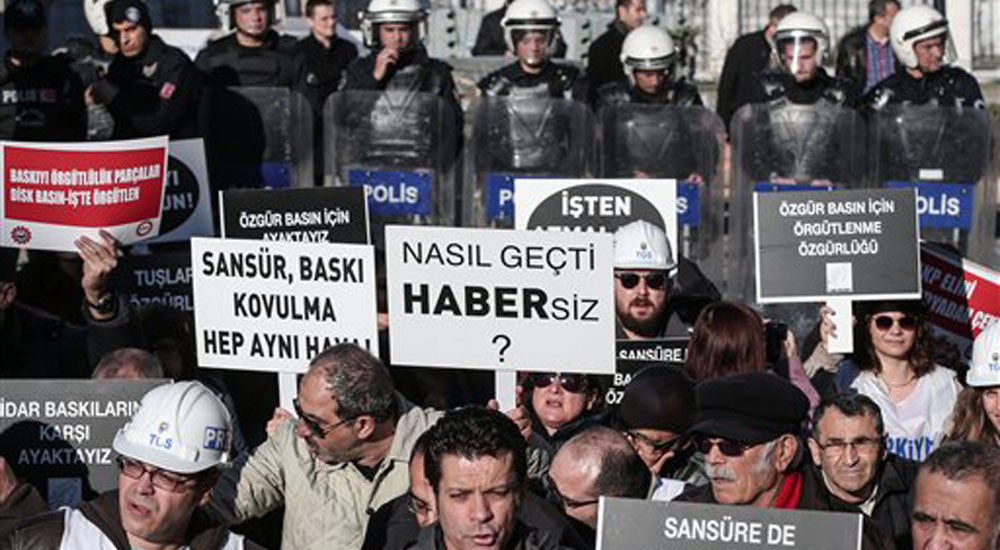
Turkish journalists hold placards that read ” no to censorship and auto-censorships” and “what about news? ” as they demonstrate outside the governor’s office to protest censorship and new regulations on media freedoms and Internet bans, in Istanbul, Turkey, Sunday, Feb. 16, 2014. Turkey’s president, Abdullah Gul, said Tuesday he had signed into force a controversial law voted in by the government that would tighten controls over web use. AP
ANKARA—Turkey’s president, Abdullah Gul, said Tuesday he had signed into force a controversial law voted in by the government that would tighten controls over web use.
Gul said on his Twitter feed he promulgated the law—which the opposition and rights groups say infringes on citizens’ freedoms—after the government assured him it would soften parts of it through later amendments.
“I am aware of the problems mainly on two points…. These concerns will be taken into account in the new law,” he said.
An opposition lawmaker earlier confirmed the planned amendments to aspects of the bill concerning some powers of Turkey’s telecommunications authority.
“The steps are positive but not enough,” Akif Hamzacebi of the Republican People’s Party (CHP) was quoted as saying by NTV television.
Blocking pages deemed insulting
Under the bill, the Telecommunications Communications Presidency (TIB) can demand that Internet providers block pages deemed insulting or considered an invasion of privacy.
But the government is now proposing that the TIB will have to inform a judge about any decision to block a web page, according to the Hurriyet newspaper.
The judge would then have to issue a ruling within 48 hours or the TIB move would be deemed invalid.
The Internet bill has sparked outrage both at home and abroad and fueled concerns over the state of democracy in the EU-hopeful country under Prime Minister Recep Tayyip Erdogan.
The legislation came on top of moves to curb the judiciary and a government purge of police and prosecutors in the face of corruption probe that has targeted close Erdogan allies.
Erdogan has vehemently denied accusations of online censorship, and said Tuesday the proposed Internet curbs were aimed at countering “blackmail” and “threats.”
“The Internet will not be censored, freedoms will not limited,” Erdogan told his lawmakers from his ruling Justice and Development Party (AKP) in parliament.
He said the number of Internet subscribers in predominantly Muslim Turkey had swelled to 34 million from 20,000 since the AKP came to power in 2002.
Defenders of the law say the new restrictions protect individual rights while critics argue they amount to nothing more than a fresh assault on freedom of expression and an attempt to stifle dissent.
RELATED STORY